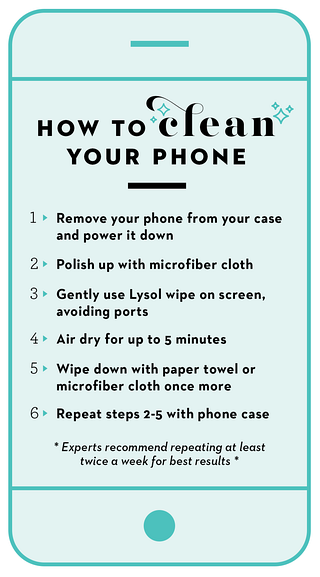- How do I disinfect surfaces during the coronavirus disease pandemic?
- What is the best household disinfectant for surfaces during COVID-19?
- Can the coronavirus disease spread through feces?
- Can the coronavirus disease be transmitted in hot or humid climates?
- What is the incubation period of the coronavirus disease?
- Should you meet with other people during the COVID-19 pandemic?
- Does COVID-19 survive in sewage?
- What is a coronavirus?
- Who is most at risk for COVID-19?
- Can the coronavirus survive on surfaces?
- Can the coronavirus disease be transmitted through water?
- How long does the virus that causes COVID-19 last on surfaces?
- Can COVID-19 be transmitted between humans and animals?
How do I disinfect surfaces during the coronavirus disease pandemic?
In non-health care settings, sodium hypochlorite (bleach / chlorine) may be used at a recommended concentration of 0.1% or 1,000ppm (1 part of 5% strength household bleach to 49 parts of water). Alcohol at 70-90% can also be used for surface disinfection. Surfaces must be cleaned with water and soap or a detergent first to remove dirt, followed by disinfection.
Cleaning should always start from the least soiled (cleanest) area to the most soiled (dirtiest) area in order to not spread the dirty to areas that are less soiled.
What is the best household disinfectant for surfaces during COVID-19?
Regular household cleaning and disinfection products will effectively eliminate the virus from household surfaces. For cleaning and disinfecting households with suspected or confirmed COVID19, surface virucidal disinfectants, such as 0.05% sodium hypochlorite (NaClO) and products based on ethanol (at least 70%), should be used.
Can the coronavirus disease spread through feces?
The risk of catching the COVID-19 virus from the faeces of an infected person appears to be low.
There is some evidence that the COVID-19 virus may lead to intestinal infection and be present in faeces. Approximately 2−10% of cases of confirmed COVID-19 disease presented with diarrhoea (2−4), and two studies detected COVID-19 viral RNA fragments in the faecal matter of COVID-19 patients (5,6).
However, to date only one study has cultured the COVID-19 virus from a single stool specimen (7). There have been no reports of faecal−oral transmission of the COVID-19 virus.
Can the coronavirus disease be transmitted in hot or humid climates?
From the evidence so far, the COVID-19 virus can be transmitted in ALL AREAS, including areas with hot and humid weather. Regardless of climate, adopt protective measures if you live in, or travel to an area reporting COVID-19. The best way to protect yourself against COVID-19 is by frequently cleaning your hands. By doing this you eliminate viruses that may be on your hands and avoid infection that could occur by then touching your eyes, mouth, and nose.
What is the incubation period of the coronavirus disease?
The incubation period of COVID-19, which is the time between exposure to the virus and symptom onset, is on average 5-6 days, but can be as long as 14 days. Thus, quarantine should be in place for 14 days from the last exposure to a confirmed case.
Should you meet with other people during the COVID-19 pandemic?
In this difficult period it is best to meet virtually but if you have to meet others, do it carefully and with the right precautions.
Does COVID-19 survive in sewage?
While there is no evidence to date about survival of the COVID-19 virus in water or sewage, the virus is likely to become inactivated significantly faster than non-enveloped human enteric viruses with known waterborne transmission (such as adenoviruses, norovirus, rotavirus and hepatitis A).
What is a coronavirus?
Coronaviruses (CoV) are a large family of viruses transmitting between animals and people that cause illness ranging from the common cold to more severe diseases such as Middle East respiratory syndrome (MERS-CoV) and severe acute respiratory syndrome (SARS-CoV).
Who is most at risk for COVID-19?
COVID-19 is often more severe in people 60+yrs or with health conditions like lung or heart disease, diabetes or conditions that affect their immune system.
Can the coronavirus survive on surfaces?
It is not certain how long the virus that causes COVID-19 survives on surfaces, but it seems likely to behave like other coronaviruses. A recent review of the survival of human coronaviruses on surfaces found large variability, ranging from 2 hours to 9 days (11).
The survival time depends on a number of factors, including the type of surface, temperature, relative humidity and specific strain of the virus.
Can the coronavirus disease be transmitted through water?
Drinking water is not transmitting COVID-19. And, if you swim in a swimming pool or in a pond, you cannot get COVID-19 through water. But what can happen, if you go to a swimming pool, which is crowded and if you are close to other the people and if someone is infected, then you can be of course affected.
How long does the virus that causes COVID-19 last on surfaces?
Recent research evaluated the survival of the COVID-19 virus on different surfaces and reported that the virus can remain viable for up to 72 hours on plastic and stainless steel, up to four hours on copper, and up to 24 hours on cardboard.
Can COVID-19 be transmitted between humans and animals?
Available evidence suggests that the virus is predominantly transmitted between people through respiratory droplets and close contact, but there are also examples of transmission between humans and animals. Several animals that have been in contact with infected humans, such as minks, dogs, domestic cats, lions and tigers, have tested positive for SARS-CoV-2.
 Naneedigital
Naneedigital


